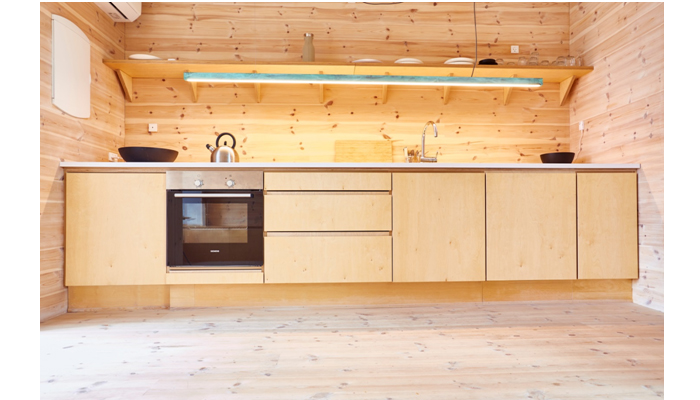Two Danish entrepreneurs have chosen to do something concrete about the perpetual problems of finding affordable student housing in Copenhagen. We met one of them, Michael Plesner, for a talk about how they did it.
BY PENELOPE DIAMANTOPOULOU
Pioner: How did you get the idea for CPH Containers?
Michael: “When we started CPH Containers we wanted to make a scalable business that could help solve large, societal challenges. This was inspired by Porter’s and Kramer’s 2011 Harvard Business Review article ‘Creating Shared Value’.
Around that time, my cofounder Frederik and I were working in NGOs, where we talked a lot about environmental and social challenges and solutions. But we had not undertaken actions on a big, impactful and grand scale yet and we wanted to do something about that.
At the same time, we had seen that people around the world were reusing old shipping containers for many different functions, including housing – a sector full of environmental and social challenges.
We realized that while there is increasing lack of affordable housing for young people, most major cities actually have lots of empty land available. Combining Danish aesthetics and quality with the mobility of containers, we wanted to take container architecture to the next level. Our goal is to make a sustainable housing solution that could make use of the temporarily empty areas, creating a new way to live. “
FOTO: Anders Brinckmeyer
Pioner : Why is CPHcontainers a sustainable solution?
Michael: “We are upcycling old shipping containers into cool student accommodation that has a very low environmental footprint while we take advantage of the containers’ mobility. This allows us to transport homes from site-to-site and make use of cheap, empty land in major cities. The homes are the central part of our CPH Village concept – a city-platform where we explore a new way to live as a young person with emphasis on community and convenient services.”

FOTO: Anders Brinckmeyer
Pioner : Was it difficult to start your company?
Michael: “With no money, little experience and a limited network, it’s taken a long time for us to come to this point where we can see the clear outlines of commercial success. It’s already been 2,5 years since we started CPH Containers. Luckily we have proven particularly good at one thing: borrowing muscle and know-how we didn’t have ourselves to orient people and organisations toward our vision. That – together with a die-hard belief that we will succeed in our mission – has been key to getting to where we are right now.”
FOTO: Anders Brinckmeyer
Pioner : What were the main challenges when you started and now?
Michael: “With our mobile housing concept “CPH Village”, we are treading new paths and no legal practices exist to support our idea in Denmark. Page one of every business textbook says: drop your idea if you need to change the law. But we went ahead and have actually been spending a tremendous amount of time lobbying for new legal practices that can open up our concept. We are in the final weeks of this work and we are excited. Currently, the outlook for a positive result is good. But with politics there is always a risk. Worst case is that we have to move the entire concept across the border to Sweden where legal practices already exist.”
FOTO: Anders Brinckmeyer
Pioner : Have you tested your concept on your users – in this case the students?
Michael: “We are launching our first CPH Village in 2017. Here 250 young people will be able to live in an inspiring place by the Copenhagen waterfront. In forming the concept we have had dialogue with a lot of students and we have had beta users test the quality and design of our homes. The initial response has been overly positive, so we can’t wait to launch full scale.”
FOTO: Anders Brinckmeyer
Pioner : How can students sign up to your containers?
Michael: “Registration for the first CPH Village will open in the spring of 2017.”
Pioner : The containers are currently only for students – why is that? Are you considering expanding the concept to other types of users?
Michael: “We have focused on students for a number of reasons. First of all, students are a group of people with low monthly income and as such are more troubled by the rapidly increasing rent prices. Today in Copenhagen, you can rent a small room without a shower or kitchen for 6.000-7.000 kr. Adding food and other living expenses and you are well over the budget for most students. Another reason is that students are used to living on limited 3-5 year contracts while studying. This fits well with our concept of moving around town and possibly to another region or country in the future. Finally, we believe that students will be very good at creating life and activity at the sites where we set-up CPH Village. This also benefits landowners, who are one of our key stakeholders. We see our members as urban pioneers who will help define how the city uses its vacant areas. It is not unlikely that we will target other groups of people in the future. We believe that everyone should have access to a home that is affordable and sustainable.”
DU KAN:
- Følge CPHContainer på facebook her
- Følge CPH Village projektet her
- Søge job og praktikplads hos CPHContainers her
